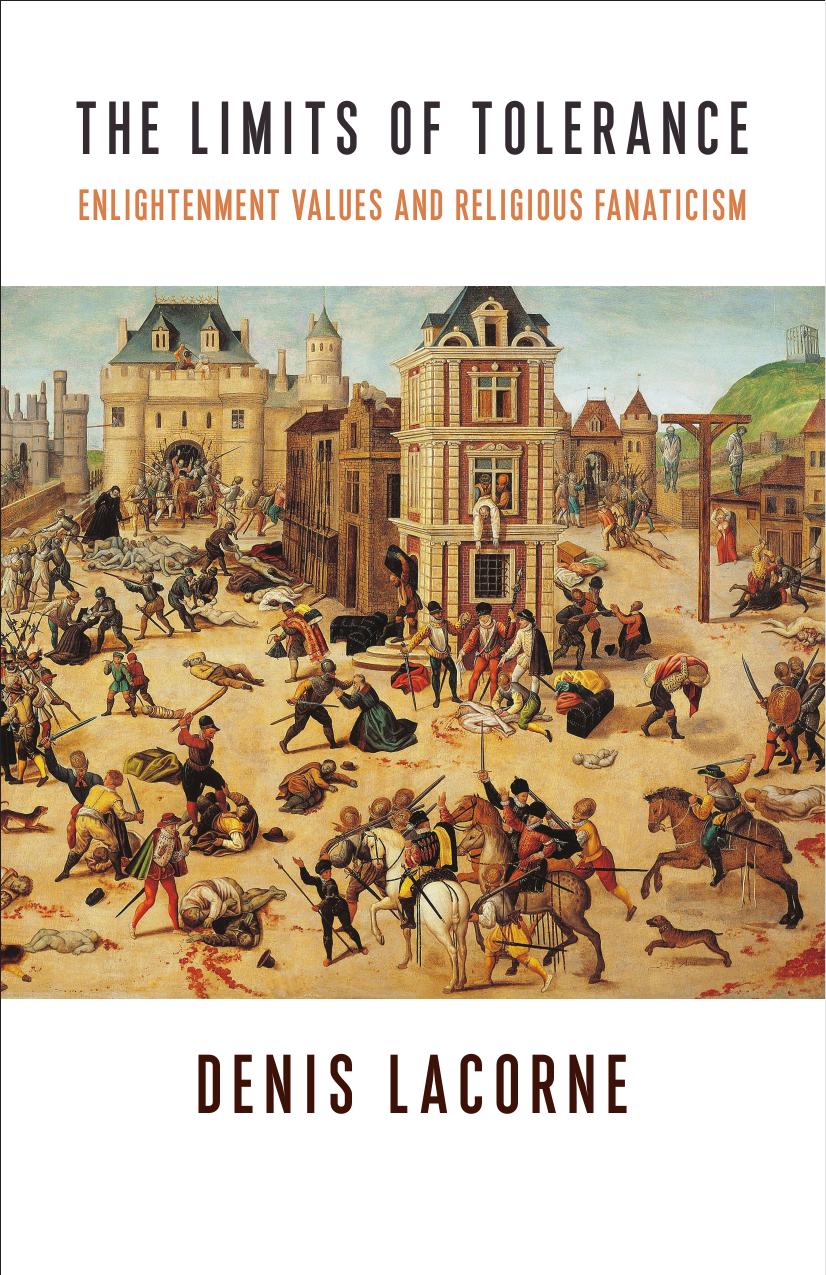The Limits of Tolerance: Enlightenment Values and Religious Fanaticism by Denis Lacorne

Author:Denis Lacorne
Language: eng
Format: epub, pdf
Tags: Philosophy, Political, Political Science, History & Theory, Religion, Religious Intolerance; Persecution & Conflict
Publisher: Columbia University Press
Published: 2019-05-07T00:00:00+00:00
JEHOVAH’S WITNESSES AND BLOOD TRANSFUSIONS
Certain religions prohibit the transfusion of blood for theological reasons, maintaining that it violates a divine interdiction. For Jehovah’s Witnesses, for example, blood is sacred and must not be “eaten,” according to their own reading of the Old Testament.18
In the United States, most states have passed laws obliging parents to provide basic health care to their children despite possible religious objections. Regarding the prohibition of blood transfusion, state courts have not hesitated to intervene to ensure that health-care providers are able to carry out certain procedures, sometimes against the express wishes of the parents. Generally the reason given is the survival of the child, but it can also be “to prevent substantial harm or suffering.”19 In less urgent medical cases, such as a parent’s refusal to allow mandatory vaccination, courts have been known to grant exemptions provided that the parents “hold genuine and sincere religious beliefs.” A simple “medical or purely moral” opinion is not sufficient to justify a derogation.20
In Canada, the medical beliefs of Jehovah’s Witnesses cause the same problems as in the United States. Blood transfusions are prohibited for religious reasons, and parents of minors pressure hospitals to prevent medical personnel, and especially emergency-room workers, from giving transfusions. A battle of conflicting rights is inevitable: on the one hand the right to life of the young child, on the other the parents’ right to act according to their religious beliefs. Such rights cannot be reconciled when a patient is in urgent need of a blood transfusion. In response to these conflicting positions, the Canadian Supreme Court has decided in favor of the medical profession and against the will of the parents. In a 1995 decision, the justices stated that a parent’s freedom of religion “does not authorize him or her to impose religious practices on a child that would threaten that child’s safety, health, or life.”21 In this case, as Jocelyn Maclure and Charles Taylor point out, “respect for the parents’ rights was obviously too great an infringement on the right to life of a minor, namely, their child.”22
In France, the Kouchner law of March 4, 2002, offers a clear distinction between the rights of adults and those of minors. With adults, “no medical procedure and no treatment can be carried out without the free and informed consent of the person.”23 Case law from the Council of State (Conseil d’État), France’s highest administrative court, formalized patients’ rights in an August 16, 2002, decision concerning the refusal of a blood transfusion by a Jehovah’s Witness. The court stated that “the right of the patient to accept or refuse treatment has the character of a fundamental liberty.”24 But in the case of an underage patient, the experienced judgment of the doctor outweighs the opinion of the sick child or the parents. In the latter case, the doctor must consider the consequences of nontreatment and is obliged to provide all vital care.25 In short, a minor has the right to express a preference, but the child’s health takes precedence over the religious objections of parents.
Download
The Limits of Tolerance: Enlightenment Values and Religious Fanaticism by Denis Lacorne.pdf
This site does not store any files on its server. We only index and link to content provided by other sites. Please contact the content providers to delete copyright contents if any and email us, we'll remove relevant links or contents immediately.
The Secret History by Donna Tartt(16606)
The Social Justice Warrior Handbook by Lisa De Pasquale(11485)
Thirteen Reasons Why by Jay Asher(7780)
This Is How You Lose Her by Junot Diaz(5753)
Weapons of Math Destruction by Cathy O'Neil(5029)
Zero to One by Peter Thiel(4816)
The Myth of the Strong Leader by Archie Brown(4785)
Promise Me, Dad by Joe Biden(4440)
Stone's Rules by Roger Stone(4412)
Beartown by Fredrik Backman(4403)
How Democracies Die by Steven Levitsky & Daniel Ziblatt(4392)
The Fire Next Time by James Baldwin(4336)
100 Deadly Skills by Clint Emerson(4070)
A Higher Loyalty: Truth, Lies, and Leadership by James Comey(4024)
Rise and Kill First by Ronen Bergman(4008)
The David Icke Guide to the Global Conspiracy (and how to end it) by David Icke(3875)
The Farm by Tom Rob Smith(3869)
Secrecy World by Jake Bernstein(3773)
The Doomsday Machine by Daniel Ellsberg(3725)
